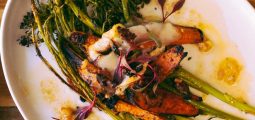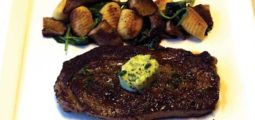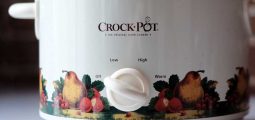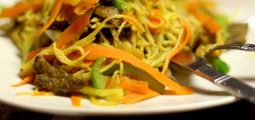The Worth of a Recipe
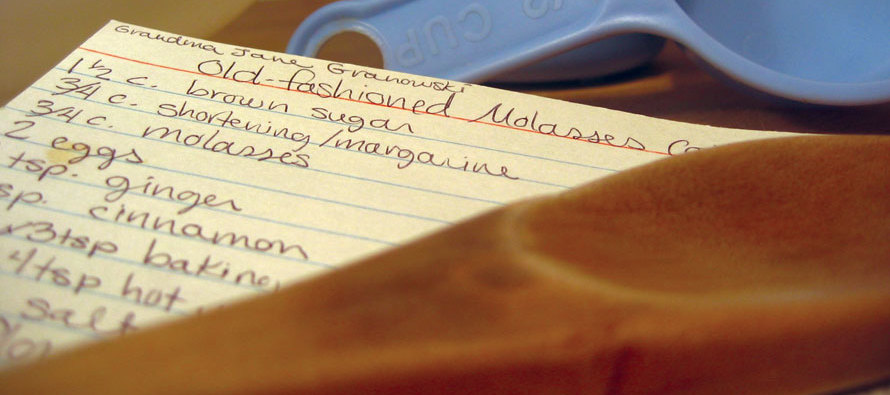
A recipe is defined as a set of directions accompanied by a list of ingredients that describe how to prepare something.
Great cooks consider themselves great because they have a deep repertoire of recipes they have either created or mastered. Many professional chefs and accomplished home cooks define what they know by the tome of recipes they have executed. I am not among them. I consider my ability in reference to the skills I have mastered and the ingredients I understand. The difference between the two may be subtle or simply semantic, but from a confidence perspective it is huge. If you can identify the different skills required to accomplish any given recipe and you understand the ingredients in that recipe, then you can grow immensely as a cook from executing that recipe.
To learn how to make mayonnaise and then consider that you have simply put the recipe for mayonnaise into your repertoire would be shameful. It may be that the recipe did not go far enough to share insight into ingredients or techniques, or that you, the recipe executor, did not look deeper into the recipe’s assertions.
I believe in recipes as a way to learn how to cook. I believe that hidden inside every recipe is a doorway that leads to a vast wealth of culinary knowledge. Identifying, opening and walking through that doorway are the keys. With a bit of guidance and bravado, every endeavor in the kitchen led by a recipe can convert itself into a lesson of cookery. If we learn each time we cook, then we will soon close our recipe books and begin to play our own beautiful music on the stove. In culinary school, we teach technique first, then ingredients, and then recipes. If we first learn the methods, then we will soon be able to apply them to a variety of scenarios.
It’s like learning to play an instrument. You first learn the techniques of hand positioning, reading music and keeping time. Then, and only then, do you learn to play songs. Occasionally, if you badger your instructor enough as I did when I was learning piano, you get to go ahead before you should, and play something cool—like Styx. In the food world this is necessary. Most often when we are cooking we are not in it for the art of the endeavor. We are in it for the calories. We are hungry, our family is hungry, and we want to eat. If we spend time cooking, we need to make sure that we are learning; even if we are simply following a recipe.
Finding a great recipe is hard.
Often the recipes available to us online or in popular cookbooks are either too simple, too vague or both. When starting out on a culinary journey, it is important to get great advice. I highly recommend Alton Brown’s book “I’m Just Here for the Food.” He is a marvelous teacher focused on technique and ingredients rather than on the final dish. This focus may make for a few boring meals, but once you have mastered the standard breading procedure or how to blanch and shock vegetables, you will be trained to tackle many more culinary challenges.
This idea of the worth of technique and ingredients as opposed to trying to build a repertoire of recipes may seem more daunting, but the opposite is true. With mastery of a few techniques, the number of dishes that you are able to deliver to the dinner table is exponentially larger than if you execute a recipe without finding its deeper significance.
Great recipes:
Are complete—all ingredients and all steps are listed
Are accurate—oven temperatures are appropriate, as are pan sizes, ingredient quantities, order of execution, etc.
Are effective—they give appropriate indicators of doneness, share inside information from the expert that is writing them, etc.
Important Considerations for the Recipe Writer:
Indicators of Doneness
An “indicator of doneness” is the description used in an instruction that notifies the recipe executor when the given step is completed. Many recipes use related but inaccurate measures for identifying this moment. Take a recipe for making meringue. Sometime during the execution of that recipe must whip egg whites. The instructions simply tell you to beat them for five-to-seven minutes. There would be no way of telling if you had reached the appropriate volume for your foam.
A better instruction for whipping egg whites would include some visual or measurable description of the texture, such as “until doubled by volume” or “until the small dollop remaining on your whisk when removed from the foam barely falls over when held upright.” The best way to supply an indicator of doneness may be an actual visual representation—a picture or diagram perhaps.
Parallel Structure
Each ingredient in the list and each instruction should be written so that it mimics the others. This allows the reader to make connections between what the writer intended in one place of the recipe to another. In addition, if you are compiling a collection of recipes, maintaining a parallel structure and style amongst each recipe will further aid comprehension.
Pocket Recipes
A pocket recipe is a recipe that needs to be accomplished in order to accomplish another recipe—a roasted garlic salad dressing for example. The ingredient list for the dressing should call for roasted garlic and then include a separate recipe defining how to prepare the roasted garlic. In general, I try to keep the recipe for any ingredient’s preparation which requires more than one simple step of cookery or knife work included as a separate recipe. I am happy to call for cooked rice and julienne carrots in an ingredient list, but I would avoid listing the ingredients and recipe for mayonnaise within the recipe for buttermilk ranch dressing.
Simplicity
Stories about techniques and ingredients are wonderful, but they may cloud the effectiveness of the recipe. Keeping them out of the ingredient list or instruction section is a good idea. If you have an essential story to tell about the recipe, do so in a separate section.
Also, our minds only process so much new information at once. Many recipes give one instruction that could easily be, and probably should be, broken into two or three different steps. Another common pitfall is spending too much space, or the wrong space, extolling ancillary issues within the framework of a recipe, such as explaining myriad substitution possibilities in the ingredient list, describing how to scale the recipe effectively in the yield section, or waxing on about the health benefits of a cooking method in the instructions section. Keep those notes in the story section of the recipe.
I do love recipes.
I love food and cooking, and recipes are technical descriptions of just that. I can spend hours poring through recipes from historical cookbooks. There is a special relationship all cooks have with the secrets explained in the great works of Julia Child, Thomas Keller, Auguste Escoffier and their peers. I am no exception. I believe it is a great skill to carefully and thoroughly construct a recipe so that others may execute the craft of cookery more effectively. It is a skill worthy of the time and money we spend devouring countless new cookbooks published each year. (Amazon.com reports that in the last 90 days, there have been almost 5,000 books released with food and cooking as the subject matter.)
If we read cookbooks and carry them into the kitchen with us, that would be a revolution, a move into the kitchen sparked by our intellectual selves. A move back to the stove. A move so needed in this time of over-consumption and hyper-convenience. A move celebrated by the great Anthelme Brillat-Savarin when he penned, “The discovery of a new dish does more for human happiness than the discovery of a new star.”
Write a recipe. Share it with someone you love. Help them discover a new star.

Brian O'Malley
Brian O'Malley is a chef instructor at Metropolitan Community College's Institute for the Culinary Arts. A graduate from New England Culinary Institute and a member of the American Culinary Federation, O'Malley worked as the chef/owner of Spread. He was a manager/instructor at the New England Culinary Institute, head chef at Vanilia in Santorini, Greece, and BackNine Grille, assistant food and beverage manager at the Champion's Club and opening chef at BOJO. Brian O'Malley can usually be found in MCC's kitchens, teaching, creating works of culinary genius or debating the perils of out of season tomatoes.
No comments
Write a commentOnly registered users can comment.
